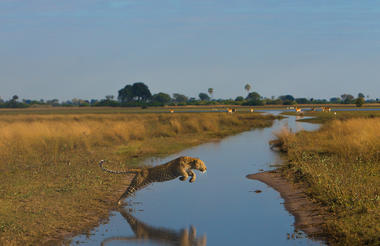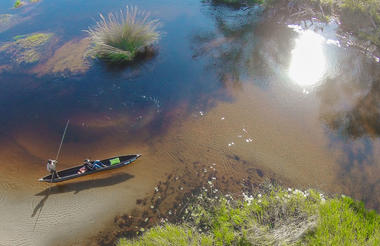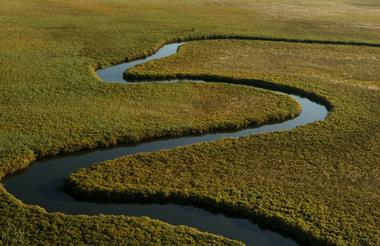The Okavango Delta is where the wild things are: an immense, waterlogged oasis alive with elephants and birdlife, adrift in the middle of Kalahari sands. The real magic of the Delta lies in its water, trickling through from far away highlands, and spreading across the channels and floodplains.
During winter in the Kalahari, when the sun has baked the earth bare and turned the desert its driest, water fills the Okavango; transforming the floodplains into a Noah’s Ark of African wildlife.
As the water brings life to the delta, its local residents shape and recreate it. Termites slowly build mounds into islands, germinated with palm trees by passing elephants. Waterways open and close on the whim of wide-bottomed hippos, carving out channels where they crash through reeds, and leaving room behind them for exploration by mokoro.
The Okavango has many faces, which change throughout the year, prompted by that most unpredictable diva of all: the weather. Water levels rise and drop, expanding and shrinking islands, while animals move where the life is easiest and the grass greenest. In a few days, a sandy road driven by vehicle can become a waterway of unknowable depth, prompting a safari by boat instead.
Where and when you stay in the Okavango Delta will hugely influence what you do in the bush each day, the animals you’re most likely to see and finally, the safari experience you’ll have.
The delta’s watery heart is best discovered by mokoro through shallow channels and floodplains, as well as crossing the islands on foot. For less water and more of the big game, visit a camp on its drier edges (including Moremi Game Reserve and the Khwai Community Area), jump on a vehicle and seek out the animals hiding in the woodlands.







